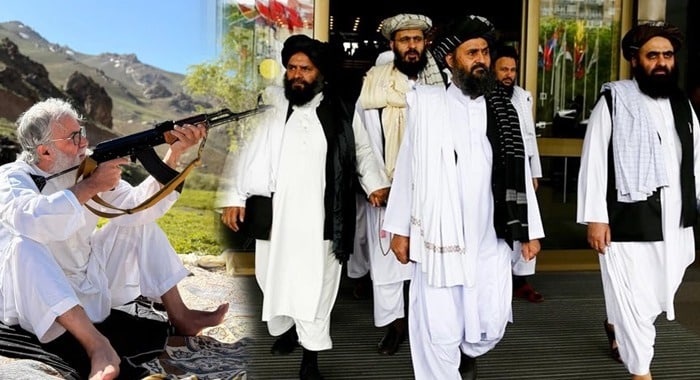In a move that has sparked rare public dissent within Taliban circles, the group has arrested and sentenced prominent Afghan cleric Maulana Abdul Sami Ghaznawi, a respected religious figure who spent over three decades mentoring many current Taliban leaders.
According to informed sources and local Afghan media, Ghaznawi was detained on July 17 from his madrassa in Kabul by Taliban intelligence agents reportedly dispatched from Kandahar. On July 23, a Taliban military court sentenced him to 45 days in prison on charges of issuing a fatwa calling for jihad against Pakistan and for his open criticism of the Taliban’s ban on girls’ education.
Initial reports suggest that some Taliban security personnel in Kabul hesitated to arrest Ghaznawi, citing his historical role as a religious instructor to several high-ranking members. However, the order, believed to have come directly from the Taliban’s Supreme Leader Hibatullah Akhundzada, was ultimately carried out by external intelligence operatives, bypassing local reluctance.
Jihad Fatwa, Education Ban Criticism Spark Arrest
Ghaznawi has gained notoriety in recent years for consistently promoting the concept of armed struggle against Pakistan, asserting that “jihad is not restricted by time, geography, or formal leadership approval.” In recent sermons, he also lambasted what he called the Taliban’s “deviation from Islamic obligations” by denying women access to education.
The cleric has previously accused figures like Khalifa Din Muhammad and the Saifiya Sufi order of encouraging “superstition and polytheism,” comments which further strained his relationship with Taliban hardliners and likely added to the charges levelled against him.
Backlash Within Taliban Circles
The arrest has triggered unusual internal criticism. Rahmatullah Andar, a former Taliban commander and ex-spokesperson for Afghanistan’s National Security Council, warned that such actions expose the group’s increasing intolerance even toward its own ideological base.
“Abdul Sami Ghaznawi’s only fault was not interpreting Islam as Hibatullah Akhundzada wants. If this is how they treat their own teachers, imagine what they will do to others,” Andar posted on social media.
Similarly, Omid Zaland, a vocal Taliban supporter, condemned the decision, claiming that the leadership had become “sensitive and fearful” of the word jihad since assuming political control. He accused current Taliban rulers of “straying from their original path.”
Wider Tensions Over Pakistan Policy and Theological Authority
Ghaznawi’s arrest is not an isolated incident but rather part of a growing ideological divide within Afghanistan’s religious ecosystem. The Taliban leadership, now operating as a de facto government, has taken a clear stance against cross-border militancy, particularly armed action targeting Pakistan, a country the group now seeks to maintain diplomatic ties with.
Earlier this year, Taliban Supreme Leader Hibatullah Akhundzada reportedly issued a decree ordering all Afghan fighters to return home and cease any operations outside the country, including in Pakistan. The edict was framed as part of the group’s commitment to not allow Afghan soil to be used against any foreign state, a core pledge made to the international community after their 2021 return to power.
However, that policy appears to be increasingly at odds with elements within Afghanistan’s clerical establishment, particularly hardline ideologues who view Pakistan as both an enemy and a legitimate target for armed struggle. While the Taliban’s ruling elite emphasise diplomatic neutrality, influential clerics like Ghaznawi continue to preach jihad across the Durand Line as a religious duty.
This ideological tug-of-war has exposed the fractured foundations of Taliban authority. On one side are clerics and madrassa networks steeped in the decades-old militant culture of transnational jihad. On the other is the ruling Taliban leadership, seeking to consolidate power through state-building, diplomacy, and international recognition, moves that increasingly demand a break from the very ideologies that brought them to power.





